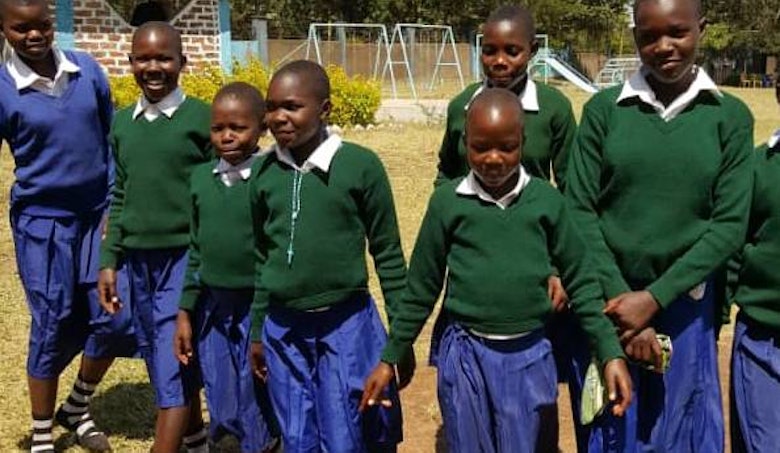Resisting the constant FGM pressure
It takes guts for a girl to refuse genital mutilation, as it is going against the wishes, traditions and norms of her parents as well as her community. The family of Rhobi (12) from Masanga, Tanzania has been trying to have her cut three times already - every time she was rescued just in time. What saved her, was the ability to recognise the signs of an upcoming FGM ceremony.
Domestic chores and farming
Rhobi grew up in a family where education for girls was not regarded as important. Like with many girls of the Kuria community, her parents considered her destination to be early marriage, right after she had undergone Female Genital Mutilation (FGM). Rhobi was always discouraged from attending classes. She never managed to go to school the full five days per week - at best she would make it two or three times a week. As the oldest girl in a family of eight, most days she was told to stay home and do domestic chores or farming activities during school hours.
FGM preparations
Despite her irregular school attendance, Rhobi learned one important lesson: the signs of FGM preparations. In October 2019, when she came home from school, she noticed that a FGM ceremony was about to happen. Knowing that she was the oldest girl in the household, even though she was only 11 years old at that time, she sensed that it was meant for her. Rhobi started planning her escape, making sure her parents would not suspect anything - and realising she had to be quick since FGM happens early in the morning.
Courage to resist
“When the cutting season began in October 2019, my parents and other tribe members insisted that I should be mutilated and married off. They all turned against me. I felt abandoned, nobody loved and cared about me.” For a girl from the Kuria community in Tanzania, resisting to be genitally mutilated is not just rebelling against her parents’ wishes. It is going against the prevailing cultural and social norms of her community, opposing traditions and everything she has been socialised on from an early age. It often leads to repudiation.
Kidnap and fake reconciliation
That same evening Rhobi escaped, she literally ran all the way to the safety of the ATFGM shelter. The shelter was to become her semi-permanent home, as her parents tried to force her into mutilation two more times. First they conspired with staff of Rhobi’s school to kidnap her in break time. Then, after accepting the girl back home in what seemed a successful reconciliation when the cutting season had ended, the man whom she had been promised to, lured her relatives with a higher bride price if Rhobi was mutilated.
Personal safety
In all instances Rhobi was rescued in time. Staying at home was no longer an option with a view to her personal safety. The girl moved back to the ATFGM rescue centre, where she still was during the Covid-19 outbreak in Tanzania. When the country re-opened schools in June 2020, Rhobi was transferred to the school sharing the compound with the ATFGM shelter, for extra safety.
Peer educator & future social worker
“Now I am happy because there are people who care about my wellbeing.” Rhobi is using her personal experience to save other girls from similar threats. She has become a member of the child rights club in her school. As a peer educator she raises awareness on FGM among her school mates. In the future she wants to become a social worker. “When I grow up, I will utilise my education to support victims of child abuse and to provide services to the community especially those who are in need.”

